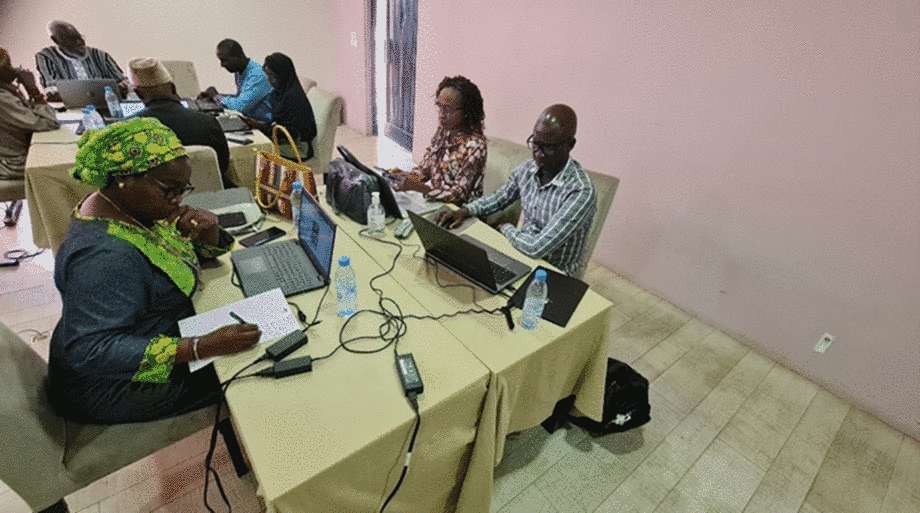Workshop on Project Maturation and Ex-Ante Evaluation of Projects and Programs of the National Climate Change Adaptation Plan (NAP) in Senegal
From May 8 to May 12, 2023, the General Directorate of Planning and Economic Policies (DGPPE) organized a five-day technical workshop for the maturation and ex-ante evaluation of project ideas selected in the Sectoral National Adaptation Plans (SNAPs). The DGPPE brings together the strategic structures of the Ministry of Economy, Planning, and Cooperation (MEPC) responsible for formulating development policies and translating them into plans and programs, as well as coordinating, monitoring, and evaluating development actions for the appropriate management of Senegal's economy.
During their opening remarks, representatives from the Directorate of Environment and Classified Establishments (DEEC), DGPPE, and sector ministries such as agriculture and health all highlighted the inclusive and participatory nature of the PNA-FEM and SAGA projects. These projects have supported sectoral stakeholders in the process of developing sectoral PNAs by conducting vulnerability studies and supporting prioritization and project idea development.
Mr. Papa Baidy Sy, Head of the Sectoral Planning and Project Evaluation Division of the DGPPE, addressed the workshop's objectives, which include supporting sector ministries in formulating projects/programs for climate change adaptation and conducting their ex-ante evaluation. According to Mr. Sy, project maturation includes the following steps: (i) identification and definition of the project idea, (ii) conducting a diagnosis and formulation using the formulation template or quality control grid for studies, (iii) evaluation based on eleven criteria through the evaluation criteria matrix, and finally, (iv) selection and proposal for budget inclusion based on the selection criteria.
The workshop follows the workshops on prioritization and development of sectoral documents for the National Adaptation Plans (PNAs), coordinated by the Directorate of Environment and Classified Establishments (DEEC). In partnership with the Support Project for Senegal's National Adaptation Plan (PNA-FEM) and the "Food Security: an adapted agriculture" (SAGA) project, the DGPPE coordinated the maturation and ex-ante evaluation of priority project ideas identified in the PNAs for the agriculture, health, terrestrial transport infrastructure, and flood-focused disaster risk management sectors.
The DGPPE supported technical ministry experts in the maturation and socio-economic evaluation of sectoral adaptation projects before their inclusion in the initial budget law. Project maturation is a key stage in the Ministry of Economy's planning chain as it identifies projects with a high level of economic and financial profitability, which are then submitted to the Ministry responsible for Budgeting and Programming needs.
In the first plenary session, the DGPPE shared the working methodology for project maturation. The head of the Planning Division revisited the selection of project ideas chosen for each sector under the NAP. Two project ideas were chosen for the agriculture sector, and one project idea for the other sectors (see table below).
Participants were divided into five working groups corresponding to the following five sectors: (i) two groups for agriculture, (ii) one group for each of the infrastructure, water resources, and health sectors, and (iii) a cross-cutting group that worked on a project for "strengthening capacities for monitoring and evaluating projects and programs of the NAP" in collaboration with the DEEC team. - logical framework and risk analysis were also developed for agriculture sector projects.
Conclusion
This exercise of planning adaptation projects in state budgeting is a crucial phase because the decisions made today regarding development will have a lasting impact on the adaptation capacities of populations and governments in the long term. Hence, the importance of not delaying the planning of climate change adaptation and the necessary measures to be taken, as the poorest populations will be disproportionately affected by these impacts.
Following the workshop, a joint mission to collect additional information for each project will be carried out before the end of May 2023 to refine the project documents.


